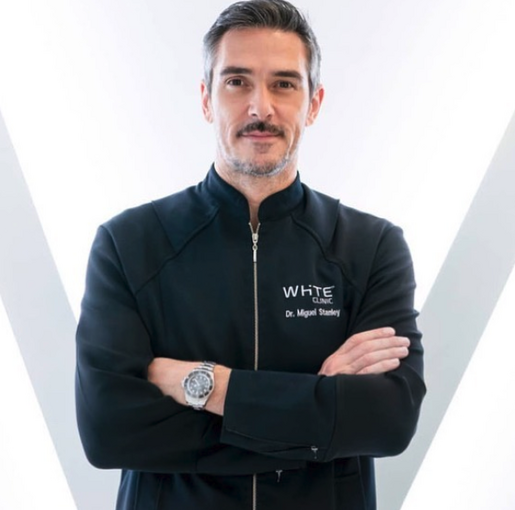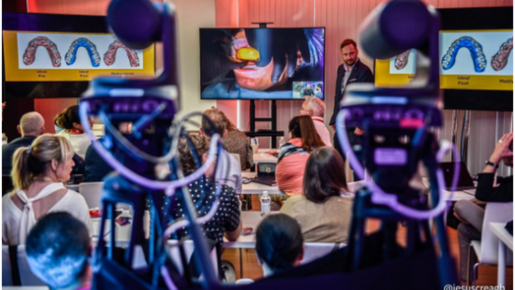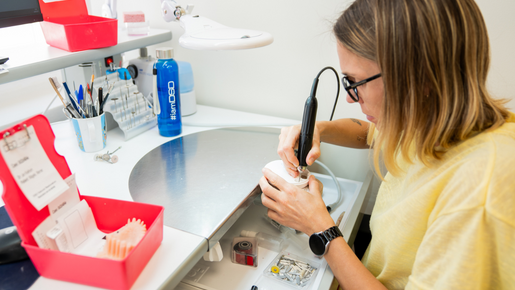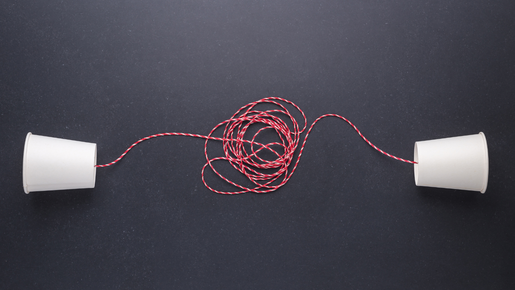
By Digital Smile Design
⋅ min read
⋅ Updated Jun, 2023
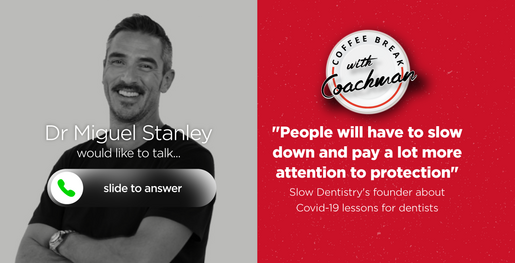
Have you been keeping up with our new series of Coffee Break with Coachman? In these brand-new episodes, Christian and his guest speakers have been talking about the impact of the current Covid-19 situation on dental clinics and the dental industry, the challenges we’re all facing right now, and much more.
To watch all the episodes so far, join our DSD Community Facebook Group.
In the very first episode of this new podcast show, Christian interviewed Dr Miguel Stanley, Clinical Director of White Clinic in Lisbon, Founder of Slow Dentistry, and the first guest to appear on Coffee Break with Coachman for the second time! If you missed it, you can read a summary of their conversation below.
What is your initial take on this crisis?
Christian Coachman
Now I want to ask you to start this conversation, what is your initial take on this crisis? What comes to your mind?
Dr Miguel Stanley
Well Christian, nobody knows anything right now. Period. Nobody. Not the president of the United States of America, the president of any country right now, no one. And these guys have the CIA working for them and the top scientists in the world. The World Health Organization is just giving very clear messages which are stay at home, self isolation. I've been doing that. I actually shut down my practice before it was mandated by the government. That was a private and personal business decision. I realized very early on in my career that we are a huge propagators of illness through aerosols. The New York Times just stated that dentists are possibly the biggest risk factors in cross-contamination in any profession in the world, so we truly are at the front line. So I commend every single dentist on earth that has shut down their practices right now.
I had an opportunity, speaking to Mike Apa tonight. I had a call with him last week. Yes, we are all friends, everybody. He as well, we were all sharing ideas. You yourself, Christian, you created a lot of chat groups with dentists around the world and everybody sharing their thoughts and fears. And to answer your question, my friend, nobody knows. Just to give a little bit of context here, I had a huge trauma and we discussed this on the first Coffee with Coachman about two years ago. I think it was two years ago. I went through a bankruptcy in 2010, and that was my, I don't know... it was a defining moment in my life as an individual, as a business owner. I was running a very successful business practice, a dental practice, and my accountant pretty much embezzled all of our cash and I lost everything. I went through this journey both as a businessman, as a dentist, and as a human being. I'll start with the human being side of that. The spiritual journey of having to lose everything, what that does to your ego. There's a very famous Portuguese expression, which is you can lose the rings, but keep the fingers. What I learned from that is that any material asset that you have is irrelevant if you don't maintain your mental sanity. If you don't maintain your basic core values as a human being.
How prepared is your business for this moment?
Christian Coachman
How prepared is your business for this moment? And just be honest with it. And the second question is, would you prepare your business in the future in a different way if something like this happens again?
Dr Miguel Stanley
Great question. I'll answer it this way. If this goes on for another two months, I'll probably have to shut down operations as we know it. The Portuguese government allowed for something called the layoff, which is you can technically lay off, for an indeterminate period of time, your staff members. Because we have two different types of staff members. We have the doctors that earn commission, which all of them... Because they're like family to us, they've all understood that, and I had a chat with them before even the government was discussing this, because as I said, we shut down White Clinic, before it was mandated by the government. So I had time to sit down with my team and say, ‘Listen, it's time to rely on your family, on your friends, because I can't tell you when the next paycheck's coming in.’
And we have doctors that live and depend on this. And as you said, if there's something to go around, I'll make sure everybody gets a part of that. But in any business in civilized Europe, the government usually is the one that makes most of the money. You've got taxes, taxes, taxes, taxes. And then we have the people that are on a salary, on a paycheck. And fortunately this month, I think I'll only have to pay 33% of that salary according to this legislation. And even if that happens for one more month, we won't be able to make it to May.
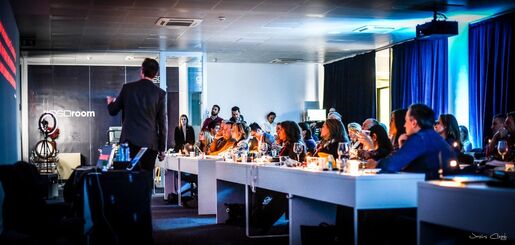
In my personal case, we actually had the rent covered for two years ahead. So that part is safeguarded. But utilities, water, gas, electricity. Then you've got, hopefully the insurance companies and so forth. But let's not think just about me as a dentist. What about the dental labs we work with? What about the providers that actually give us materials? I already know, two weeks before the crisis, people wanted cash for deliveries. So you have to prepay if you want your deliveries done, which I can understand. We always have a specific amount of stock in the clinic for at least one, one and a half months ahead.
But you know what it's like to sit on a huge amount of stock, that some of them have timeframes on them. Now I can't use this product, nobody's even discussed that, stuff that goes out of best by usage date. So, I don't know Christian. All I know is that I have to keep a positive mindset, because a lot of people depend on me. My daughters depend on me, my wife depends on me. But if I have to go deliver Uber to put food on my table for my families, I will do that. I know how to ride a motorbike. I know how to drive a car.
I will go and do basic service. I will clean sewage before I can't provide food for my family. And to answer your question, there's no shame in losing your business. There's no shame in that. And if you make bad business decisions and you run your business into the ground, then okay, you made a mistake. Maybe you're an idiot. Maybe you made some wrong choices. But at the end of the day, this isn't your fault. You losing your business due to this, isn't your fault. What will happen is, I think it was Confucius that said, "It isn't about how you fall. It's about how you get up."
How can we make a plan for the future?
Christian Coachman
How can we make a plan for the future? And I think the answer here is, it's very hard to make any type of plan. What you need to do, is to make the numbers very, very clear with what you have, what you have in the bank, how you cut costs, how you protect your employees, because that's what ... I want to be able to share to the last penny everything that we have with everybody. If we have 100 people and we have $100 left, we are going to share $1 for each one until we have nothing. Because then after, when we are back working, we can restructure and say, "Okay, we're going to start small again. We're going to start from scratch. How did the market behavior change? Are consumers still buying our product? Do they want what we have to offer? How do we reinvent ourselves? How do we find out what the priorities are that people will look after and pay money for, when they start making some money, when we are back into business.
Dr Miguel Stanley
I would agree 100% with everything you said. This is the time now for protecting your family. And I feel bad for all these people that have just opened the clinics, that have made huge investments. Just last year we invested in a lab in the clinic we've got, invested a lot of money. So look, we're all screwed, everybody on the planet right now in the dental industry, from the CEO of Henry Schein, all the way down to the cleaning lady that works in a clinic in Mumbai cleaning the floor, making $1 a day or $2. Everybody in this industry is going to take a hit. And I think you're very right about, we don't know what kind of business ... But we are dentists, and from the numbers that I have, there's roughly two, 2.5 million dentists in the world. We actually provide a very important and crucial service that most of humanity cannot find in hospitals. So in times of crisis people will want to have dentures.
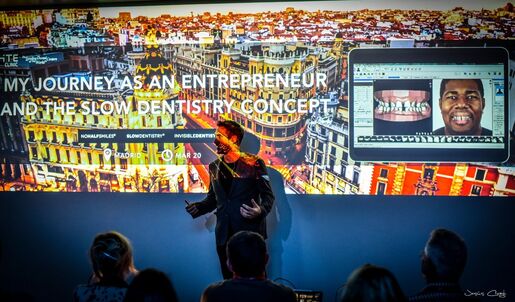
People are going to hold on to their cash, elective cosmetic procedures I think will be on hold for a while. People need to chew. So, for example, we just invested in a 3D printer, and we are working with exocad software that has an amazing software to allow dentures. So if you've got an intraoral scanner, a 3D printer, access to the liquids, you can make a 3D denture on your computer at home, on your time off, and actually help somebody chew their food.
So I think dentistry is going to go back to its core values, which is pain therapy, hygiene, and prevention and chewing. Don't forget that there's a correlation between oral health and overall health. And not just that. Immune ... I've been doing a lot of biological dentistry lately. And I'm very passionate about the correlation between bad dentistry and your immune system. So if you've got bad root canals or an impacted wisdom tooth with a cyst around it, there's no way that that's not impacting your immune system.
Christian Coachman
Dentists giving importance to systemic health in general, is probably something that will gain value.
Do you think this crisis will generate a long-term change in consumer behavior? Will this change priorities? And based on that, do you think that cosmetic services will increase their value or decrease their value?
Dr Miguel Stanley
All right, so let's break that down. First of all, great question. I don't think anybody should be a profiteer in times of human crises, meaning, if you are raising your prices just because there is a crisis going on, I don't agree with that. If you provide exactly the same service and charge more, I don't think that's the right thing to do. But remember, I've had to come in several times during this crisis to practice emergency pain treatment. Let's say I had a patient, a 64-year-old woman who's got a black eye, she's got an abscess draining into her sinus, because she's got failed root canal treatments. And the cysts have gone into an acute phase, and her face is swollen up.
She's been on antibiotics for three days. She can't go to a hospital. And the only way we can treat that is by extraction and disinfecting with lasers, so on and so forth. Now, in order for my team to get prepared to come and provide emergency pain, dental treatment, which isn't just medication, because medication is not going to help this patient, you have to actually go into surgery.
The amount of money that it takes to put on sterilized cloth, the gloves, the masks, everything. They're selling masks at five euros. The FFP2 masks, these things cost a lot of money. So as you know, Christian, we've been practicing Slow Dentistry for 20 years, meaning we've always been very protective. And the reason why, I'll get into it later, was because I've always been petrified of HIV AIDS. I'm 47 years old, and I studied dentistry when the AIDS epidemic was very, very high. So we were all brainwashed to be very, very careful of cross contamination and HIV. And that's why we've always had a policy, one patient per hour minimum. But now during the COVID outbreak, what we're understanding is that people are a lot more aware of, even just to do a simple extraction, you go in as if the person is contaminated and that costs a lot of money.
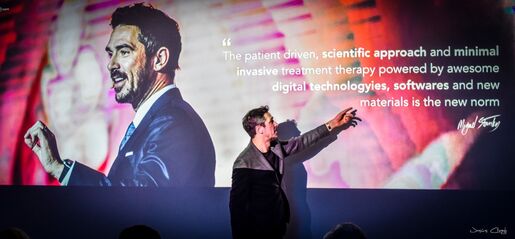
So I think prices will have to go up, because of the time it takes to prepare the team to avoid cross contamination. So I think inevitably prices will have to go up. But if you're not doing that protection, it's unfair that prices go up. To answer your last question regarding the prices of cosmetics, I think that will have to be everybody's individual choice. But if somebody has to have 10 veneers during the outbreak, A), that's not an emergency treatment. But let's say, once we are allowed to go back to work, I think that people will have to slow down, pay a lot more attention to protection, because this virus might have a mutation, it might come back worse. We don't know about that. So I think we'll be having to practice protection for ourselves, our team members and our patients, to a degree that has never been seen before, and there will be costs for that.
What will be the long-term impact on cosmetic dentistry?
Christian Coachman
Let's pretend that this crisis actually left a long-term change in behavior where people will care more about their real health and care more about their inner beauty instead of their outside beauty. We know that every high-end dentist, such as you and my father and all the clinics that we know, we make very, very good profits from smile makeovers that are not necessarily directly related to a problem, a systemic problem.
It's just people deserve to look better, let's say. But if people care less about that, we know that this is going to generate a big hit on every high-end interdisciplinary restorative esthetic dentistry office. Do you think that is a good thing or a bad thing?
Dr Miguel Stanley
So it's a very big question you're answering and I'll tell you what I did personally. Four years ago I had a family member that was sick. And I'd been treating this person for a very long time as a dentist and everything was stable in the mouth. And this person was very close to me, I don't want to mention who, and had flown to the Mayo Clinic in the US, or the best clinics in the UK, in Paris. And it looked like they weren't going to live very long and now they were looking to alternative medicines to try and stay healthy. And we all understand that most illnesses are created by chronic inflammation.
Chronic inflammation is changing my life. I am now 100% focused on reducing chronic inflammation in my patients. My core target patients are baby boomers. People between 60 and 80 years old.
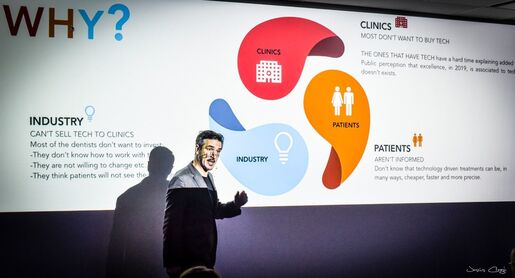
There will always be a place in society for cosmetic dentistry, period. I just think that a person who has great teeth that wants to have super great teeth that might not be so important, but I'm very focused on biological dentistry. I've been working with a young doctor on my team, we created a research and development department at the White Clinic and she's now studying with a guy from the University of Frankfurt, now University of Bern. We've been really going into understanding how chronic inflammation can affect your systemic health.
So when you remove chronic inflammation from cysts and infected impacted wisdom teeth, bad root canals and failed implants so on and so forth, where a lot of dentists today are still focused on maintaining these issues. If you look at it from an immunotherapy treatment issue, not from saving the money you've invested, but just getting it out of the body.
It's going to change. And I think to answer your question full circle, this outbreak will make sure people shift their focus. And I think if you can improve your immune system, why would you not improve your immune system? So there's ways to improve your immune system and we know that it's studied with supplementation, healthy eating habits, healthy sleeping patterns, drinking lots of water, doing exercise. But what about removing toxic dentistry from your mouth that has been creating chronic inflammation?
How can we face the current situation on a personal level?
Christian Coachman
Now, on a personal level, are you investing time in yourself and what do you believe we can do to become a better person?
Dr Miguel Stanley
On a personal level, I'm reading, I'm studying, but honestly I'm trying to slow down. I'm trying to just find time to be with my daughter, create good energy because I think a lot of kids are going to feel anxiety. They feel anxiety from their parents. And I think that more than anything, we have a responsibility to the children to not scare them. Everybody knows Benigni's film, what is it, ‘La vita è bella’. It's one of the most beautiful movies about a father making sure that his child doesn't get traumatized.
A final message about Covid-19
Dr Miguel Stanley
Christian, a lot of people that are watching us today, I know we've got followers all over the world, a lot of people don't understand the steps to success. You have been there throughout every single moment I've ever interacted with you direct or indirectly, you've always been incredibly generous with your contacts, your connections, your thought process. I mean, many people don't know, I get phone calls from Christian behind the scenes, "Don't do that. You should do this." He's very passionate about helping people and he does this with me and he does this with everybody around the world.
Just think about it, he does that generously. He doesn't ask for anything, he doesn't ask for financial compensation. If this guy ever needs anything, every single dentist or nurse is going to rush to help him because of that. So perhaps if you're worried about how you're going to succeed in your country during this crisis, it isn't by yourself. It's as a community. It's with the people. So you know, mend bridges, that broken little fight that you had going on, little jealousies. God knows that dentistry's the most jealous community on the planet. Get rid of all that stuff, it doesn't matter, and reach out to somebody and ask how you can help people. Yeah, I know you're very spiritual, I think I am as well. I think that ... some of the greatest authors in the world say that our soul expands when we suffer great trauma. I think a lot of people are going to grow a lot spiritually from this and God knows our planet needs it, so ...
Christian Coachman
The shortcut to evolution.
Dr Miguel Stanley
A shortcut to evolution. I saw somebody the other day, they were fighting because the government said stay at home and then they showed a photograph of people in line at a supermarket not respecting social distancing. How can we stop people doing that? I'm like, man, let Darwinism work. If people want to be dumb and make dumb decisions, then look, it's just part of human nature, you know?
We are all a part of this. As we started with this discussion, nobody has a clue about what's coming, my friend. Nobody knows. I had a Catholic upbringing. I went to an all-boys Catholic school and I studied the apocalypse, right, and Genesis, the book of Genesis. I'm not a religious fanatic at all, but there's a locust plague coming through Africa. We have the ... so the locust was one of the things. We've got war, we've got famine, now we have a global pandemic going on. I'm like, what's happening? It's crazy times, man. Crazy times.
